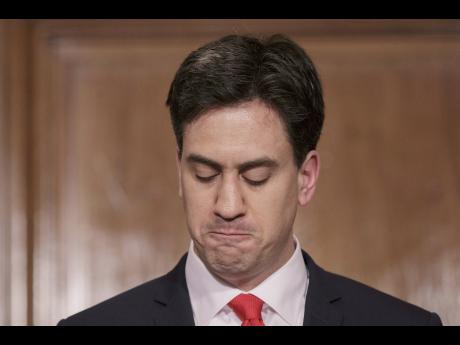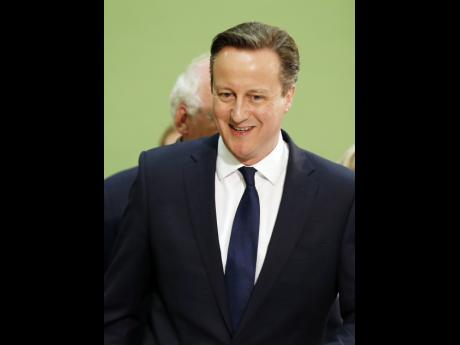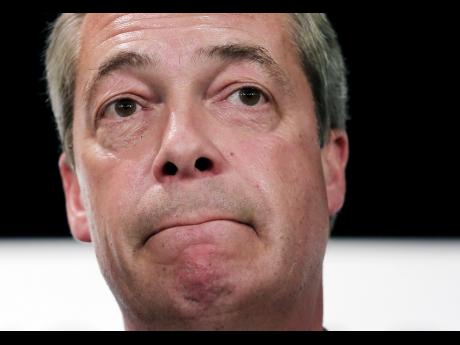The dis-United Kingdom
David Cameron won last Thursday's British election the way Carl Lewis used to win his races - not by overtaking his opponents, but by maintaining his speed when everyone else slowed down.
At a time when the mood in Britain turned against the political Establishment, Mr Cameron shored up his Conservative Party's ramparts and held the bastion. The Tory share of the national vote barely budged from the last election. But the vote for his junior coalition partner, the Liberal Democrats, collapsed, enabling lots of Tory pickups. Meanwhile, Labour was decimated north of the Scottish border, enabling the surging Scottish National Party to poach dozens of the party's seats.
Simply holding the line against an angry tide is no mean feat, and Mr Cameron and his party deserve credit as savvy campaigners. Nevertheless, the Tory victory was not without its price. In the post-recession age, when austerity has constrained the resources available to the public sector, the governing party shored up its base by targeting giveaways to its supporters while shutting everyone else out in the cold. So young voters and the working poor, who either don't vote or opt for Labour, have seen nothing but cuts to the programmes that benefit them. In contrast, Tory-leaning pensioners and investment bankers - who, as The New York Times reported recently, have poured millions into Conservative Party coffers - have enjoyed rising transfers and tax cuts.
BATTLING DIVISIVE GENIE
This is not unusual in contemporary politics, where strategists are increasingly slicing and dicing the electorate to favour their respective tribes. But it may prove difficult to wrestle the divisive genie of Tory success back into its lamp. The Conservatives will press ahead with a strong mandate which, however, only a quarter (once one factors in no-shows) of the fragmented electorate actually gave them.
Meanwhile, the tribes Mr Cameron has alienated are not floating masses, but regionally concentrated groupings. Scots who have felt left out turned in droves to the separatist SNP, taking almost all of the seats on offer in Scotland. The virtual disappearance of Scottish Labour played into Tory hands. But it has also sent a bloc of MPs to London who are determined to take their country out of the union.
Mr Cameron prevented his own supporters drifting to the anti-European United Kingdom Independence Party by promising an in-out referendum on European Union membership. He'll now have to keep that promise. Quite apart from the fact that it is not at all clear the British economy would benefit from leaving Europe, should the tide in England swing decisively against EU in the run-up to the vote now expected in 2017, Scottish nationalism will grow ever stronger: The Scots are considerably keener than the English on the EU.
Mr Cameron moved quickly to allay fears as he spoke on Friday morning from the steps of 10 Downing Street, the prime ministerial residence he will now get to occupy for another five years. He spoke of himself as the prime minister of all Britain, promised a better deal for Scotland, and was gracious in thanking the defeated Liberal Democrats for working with him in coalition.
In the election campaign, Mr Cameron revealed himself to be a canny politician. But he must now reveal himself to be a good statesman - something that was in short supply during his first term of office.
Arguably, on the eve of this election, the British public was looking for a reason to turf Mr Cameron and his Conservative Party out of office. This was a campaign dominated by fear - fear of Europe, fear of immigrants, fear of Scotland, fear of Labour government deficits. Mr Cameron played astutely on that fear. His opponents needed to counter this with a narrative of hope. I would suggest the SNP did that, and won its handsome rewards in consequence.
But Labour merely gave us an unconvincing pastiche of focus-group-tested policy positions, seemingly vetted by political consultants. It has only itself to blame for its dismal showing.
- John Rapley lectures at the Centre of Development Studies at the University of Cambridge. Email feedback to columns@gleanerjm.com.




